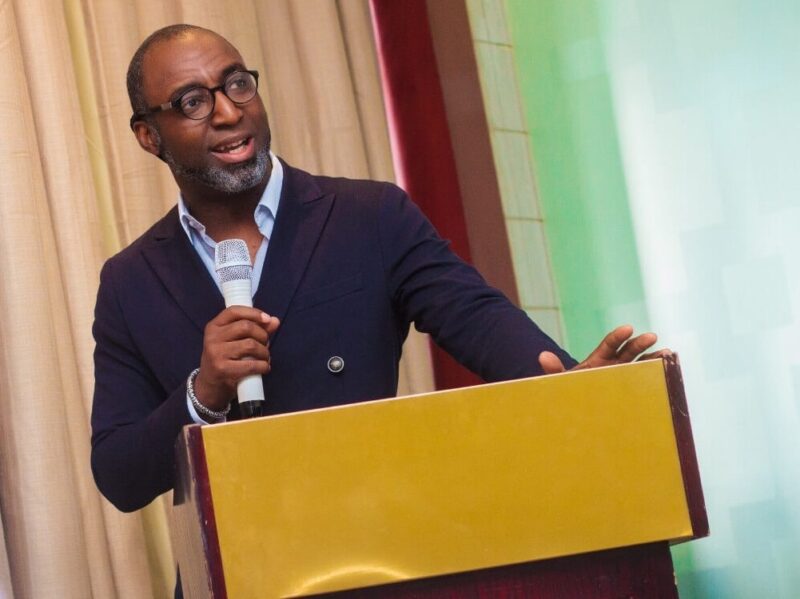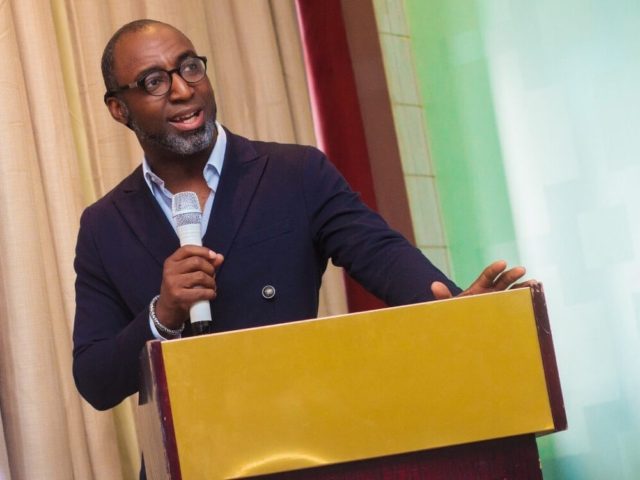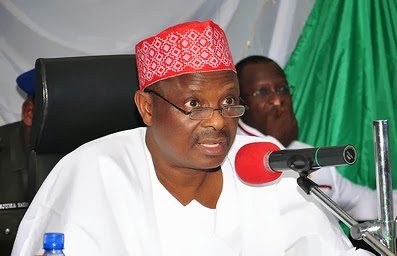Democracy & Governance
The Youth As Drivers of National Development, My Approach -By Adewale Ajadi

The election cycle of 2019 has had some defining elements. One of the most peculiar aspects has been the emerging role of young people, under 35, as political actors representing the critical voice of their generation by becoming leaders, partners and catalysts in our emergence from country to nation.
My shorthand description for this demographic is Generation N; born into a post-independence country and a vital part of the country’s efforts and promise to replace indigeneship with genuine citizenship. This elusive goal missed my generation, now in their 50s and early 60s. Our obsession with being part of the ruling elite pushed us into compliance and complicity with the venality – all that has led to cynical obsession with material acquisition and security replacing idealism.

Whether it is “Not too young to run” or other ways, the sheer commitment of young people to leave a mark on the national consciousness as a generation is worthy of major applause. At the same time, I have a compulsion to publicly challenge any sense of entitlement that says those who are older must move aside because of their ages, as if chronological age is the defining indicator of capacity. This is my contradiction, and it has often meant I rarely champion anything that determines eligibility on the basis of age.
Imagine my shock then when I was asked by Transformative Leadership and Sustainable Development Initiative (TLSDI) to be the keynote speaker at their event of March 28. Unknown to TLSDI, my own organisation, Synergos, had prioritised its Bridging Leadership work with the African youth. I had been involved in the design thinking and focus for the Bridging Leadership strategic goal which, when completed, will extended from North Africa, from Egypt, across Ethiopia, through Nigeria, all the way to Namibia and South Africa. Also, the partnership Synergos struck with the Lagos State Employment Trust Fund was based on prioritising support for young people. Simply, the TLSDI event was to be a fresh opportunity for exploring this complex issue on which I had been working with their invitation-only guests.
The event went well, and my contribution that started with highlighting key and relevant words from the National Prayer (Second stanza of the National Anthem) grounded my reflections. Unusually for me, I overran my time for this most complex of topics. It was titled “The Surge: Harnessing the Youth Bulge for Socio-Economic Transformation”. My approach – putting the speech in the context of the adaptive challenge confronting Nigeria – was intended as a call to action for these young leaders, some of who had been elected into office. An adaptive challenge is a leadership challenge that requires original and creative thinking to rise up to an unprecedented situation. A challenge that requires mobilisation for new solutions which are unprecedented. This is opposed to a technical challenge that has an already defined and effective solution. Nigeria’s adaptive challenge is in using our demographic dividend to transform our country into a prosperous nation that serves humanity and delivers excellence for African posterity.
Addressing my audience, I borrowed liberally from the book of “Esther” in the Bible, quoting Mordecai that it is for such a time as this that their generation was born. I then broke the adaptive challenge into six (6) current elements: youth unemployment and underemployment; the challenge of moving beyond the masquerade of education, which is largely indoctrination and certification and not fit for purpose; the agency of young people versus the sense of entitlement; the challenge of moving beyond indigeneship and tribal positioning to citizenship; the move towards economic inclusion as central for national evolution; the challenge of being authentic ancestors for posterity.
Unfortunately, by this time I was receiving signals that my time was up so I moved through the building blocks of what we must do to realise the benefits of this blessing called the youth bulge. These include using the Economic Recovery and Growth Plan premise that the catalyst of growth will be agriculture. From design, technology, industry, market-facing capacity and production, agriculture will lead to mass employment. Again, we must turn out informal economy into part of a holistic and intentional economic giant. In this connection, we must use our diversity for creativity and excellence, ensuring that 2+2 can equal 50. We also need to evolve a National Competence Framework, beyond schooling, that provides a true pathway to those who are capable of creating, producing and excelling. We must develop new leaders who build bridges that encourage collaboration beyond the fault lines, as well as cooperation beyond side deals.
In my rush, I forgot to mention that we must also facilitate custodians and trustees of our environment, ensuring that we move beyond indiscriminate consumption and indifference to consequences. I hope I did encourage the participants as I would like to also engage you towards the openness of spirit that is love, towards the openness of mind that is wisdom, towards the openness of hand that is service, as well as hard work. Overall, I pray the wonderful prayer of Psalm 19:4 for you, them and myself, “Let the word of my mouth and the meditation of my hear be acceptable in thy sight, O Lord, my strength and redeemer”.
Adewale Ajadi, a lawyer, creative consultant and leadership expert, is



















